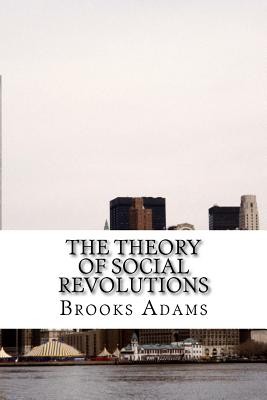
- We will send in 10–14 business days.
- Author: Brooks Adams
- Publisher: CreateSpace Independent Publishing Platform
- Year: 2015
- Pages: 100
- ISBN-10: 1508617341
- ISBN-13: 9781508617341
- Format: 15.2 x 22.9 x 0.5 cm, minkšti viršeliai
- Language: English
- SAVE -10% with code: EXTRA
Reviews
Description
This crisis, according to my computation, was the normal one of the third generation. Between 1688 and 1765 the British Empire had physically outgrown its legal envelope, and the consequence was a revolution. The thirteen American colonies, which formed the western section of the imperial mass, split from the core and drifted into chaos, beyond the constraint of existing law. Washington was, in his way, a large capitalist, but he was much more. He was not only a wealthy planter, but he was an engineer, a traveller, to an extent a manufacturer, a politician, and a soldier, and he saw that, as a conservative, he must be "Progressive" and raise the law to a power high enough to constrain all these thirteen refractory units. For Washington understood that peace does not consist in talking platitudes at conferences, but in organizing a sovereignty strong enough to coerce its subjects.
- Author: Brooks Adams
- Publisher: CreateSpace Independent Publishing Platform
- Year: 2015
- Pages: 100
- ISBN-10: 1508617341
- ISBN-13: 9781508617341
- Format: 15.2 x 22.9 x 0.5 cm, minkšti viršeliai
- Language: English English
This crisis, according to my computation, was the normal one of the third generation. Between 1688 and 1765 the British Empire had physically outgrown its legal envelope, and the consequence was a revolution. The thirteen American colonies, which formed the western section of the imperial mass, split from the core and drifted into chaos, beyond the constraint of existing law. Washington was, in his way, a large capitalist, but he was much more. He was not only a wealthy planter, but he was an engineer, a traveller, to an extent a manufacturer, a politician, and a soldier, and he saw that, as a conservative, he must be "Progressive" and raise the law to a power high enough to constrain all these thirteen refractory units. For Washington understood that peace does not consist in talking platitudes at conferences, but in organizing a sovereignty strong enough to coerce its subjects.


Reviews